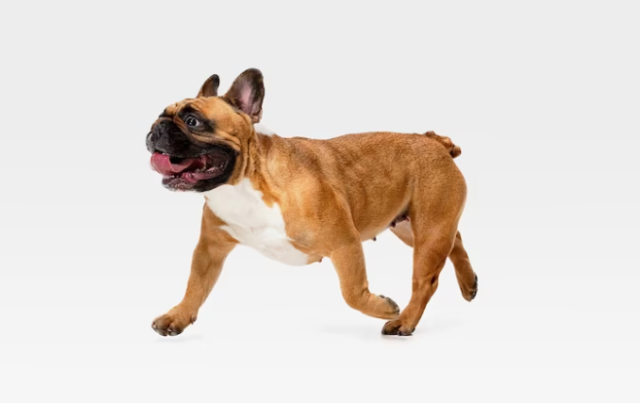Introduction
The Bear Dog breed is a captivating mix of power and gentleness that has gained popularity among dog enthusiasts. With their imposing presence and affectionate nature, Bear Dogs have become sought-after companions. In this article, we will delve into the intriguing world of the Bear Dog breed, exploring their characteristics, history, and essential care tips.

Understanding the Bear Dog Breed
The Bear Dog breed is known for its remarkable physical attributes and distinct temperament. These dogs boast a sturdy and muscular build, often resembling a bear in appearance. Their deep-set eyes and well-defined facial features add to their unique charm. Bear Dogs come in various sizes, ranging from medium to large, and exhibit a coat that can be short or long, with a range of colors.
Origins and History
The origins of the Bear Dog breed can be traced back to the rugged regions of [specific region]. Initially bred for [purpose], Bear Dogs quickly gained recognition for their versatility and loyalty. Their lineage can be traced back to [specific ancestors]. Over time, they have become popular both as working.
Key Characteristics
3.1 Strength and Agility:
- Bear Dogs possess impressive strength and agility, making them ideal for various tasks.
- Their robust physique enables them to excel in activities such as [specific activities].
- With proper training, Bear Dogs can exhibit exceptional athleticism and endurance.
3.2. Gentle and Protective Nature:
- Despite their imposing appearance, Bear Dogs are known for their gentle and affectionate demeanor.
- They form strong bonds with their owners and are often protective of their loved ones.
- Bear Dogs’ loyalty and watchful nature make them excellent companions and reliable guard dogs.
Care and Maintenance
4.1. Exercise and Activity:
- Bear Dogs require regular exercise to channel their energy and maintain their physical well-being.
- Engage them in activities like [specific exercises] to keep them mentally stimulated and physically fit.
- Adequate exercise also helps prevent behavioral issues that may arise from pent-up energy.
4.2. Grooming and Coat Care:
- The grooming needs of Bear Dogs depend on the length of their coat.
- Regular brushing helps keep their fur healthy and free from mats or tangles.
- Consult a professional groomer for specific coat care recommendations based on your Bear Dog’s needs.
Bear Dog vs. Other Breeds: A Comparison:
| Characteristic | Bear Dog Breed | Other Breed |
|---|---|---|
| Strength | High | Moderate |
| Affectionate Nature | Yes | Yes |
| Exercise Requirements | Moderate | High |
| Watchfulness | High | Moderate |
Bear Dog Breed in Popular Culture:
-
- Bear Dogs have made appearances in various movies and TV shows, captivating audiences with their striking presence.
- Their unique combination of power and gentleness has made them popular as both working dogs and on-screen companions.
Conclusion
The Bear Dog breed encapsulates a fascinating blend of strength and gentleness, making them an appealing choice for dog lovers. Their imposing physique, combined with their affectionate nature, sets them apart from other breeds. By understanding their characteristics, history, and care requirements, prospective Bear Dog owners can provide a loving and fulfilling environment for these remarkable canines.
FAQs
Q1: Are Bear Dogs suitable for families with children?
Yes, Bear Dogs can be great family pets. Their gentle and protective nature makes them excellent companions for children, provided they are properly socialized and trained from an early age.
Q2: Do Bear Dogs require special training?
While Bear Dogs are intelligent and trainable, they may benefit from consistent and firm training methods. Early socialization and obedience training are important to ensure they grow into well-mannered and balanced dogs.
Q3: Are Bear Dogs prone to any specific health issues?
Like any breed, Bear Dogs may have certain genetic predispositions to certain health conditions. Common concerns include [specific health issues]. Regular veterinary check-ups and a nutritious diet are crucial for maintaining their overall well-being.
Q4: Can Bear Dogs adapt to different living environments?
Bear Dogs can adapt to various living environments, but they thrive in homes with ample space for exercise. A securely fenced yard or access to regular outdoor activities is beneficial for their physical and mental stimulation.
Q5: Where can I find reputable Bear Dog breeders or adoption centers?
To ensure you obtain a healthy and well-bred Bear Dog, it is advisable to research reputable breeders or consider adopting from rescue organizations. Look for breeders who prioritize the health and temperament of their dogs.
Read also
- Hunting Dog First Aid Kit: Essential Supplies for Your Canine Companion
- Find the Best Dog Food for Your Huskies
- Attention Dog Lovers: Japanese Breeds Unleashed!
- Understanding the Phrase “My Dogs Are Barking” and Its Meaning
- Dog Chewing Nails: Causes, Prevention, and Effective Solutions
- Dog First Aid Kit: Essential Supplies for Your Canine Companion
- The Ultimate Guide: How to Stop a Dog from Jumping Up | Expert Tips
- Indestructible Dog Toys: Keep Your Pup Entertained for Hours
- Cheap Dog Toys: Affordable and Fun Toys for Your Furry Friend
- The Ultimate Guide: How to Give a Dog a Pill When They’re Not Eating
- Discover the Best Dog Food for German Shepherd Puppy: Unveiling the Ultimate Guide!
- Mastering the Art of Giving a Dog a Pill Without Food
- Dog Supplements for Homemade Dog Food And Nutritions
- Super Chewer Dog Toys: The Ultimate Guide for Aggressive Chewers
- Effective Ways to Give a Dog a Pill When He Refuses to Eat
- Groom Like a Pro: Top 10 Dog Grooming Tips and Tricks
- Mountain Feist Dog Breed: A Perfect Companion for Active Individuals
- Dog Muzzle for Barking: Control Excessive Noise with Effective Muzzles
- Effective Strategies to Stop a Dog from Jumping Up | Expert Advice
- Stop Dog Chewing Paws Now! Effective Home Remedy for Happy Pups



